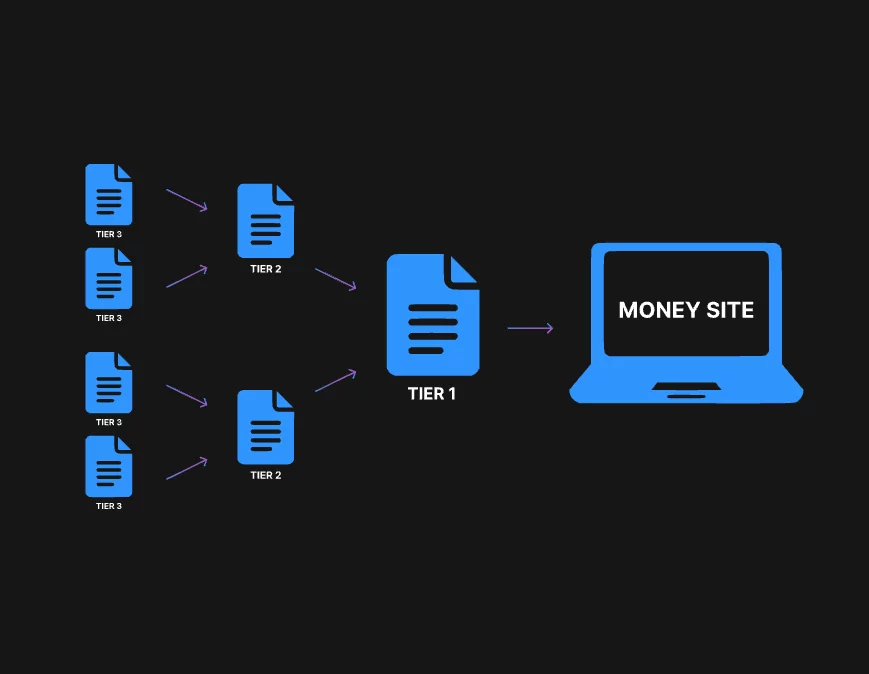Online reputation management system and social media for individuals
Welcome to the age of digitization, where your business is no longer confined within four walls. The world is your stage—or perhaps more fittingly, your market—and the curtain rises and falls based on the clicks, shares, and reviews that flow in the virtual world. Think of it this way: your physical store or office space might close for the day, but your digital presence is a 24/7 operation. The phrase «sleeps like a business» doesn’t apply here. Social media and reputation management have not just become appendages to business strategy; they are now the heart and soul.

Why online reputation management is important for your business
A study by BrightLocal reveals that a staggering 82% of consumers read online reviews for local businesses, with 52% of 18-54-year-olds saying they ‘always’ read reviews. The world is watching, and the lens through which they see you often comes from what appears on their screen. Your business’s reputation isn’t just what you say it is; it’s what Google, Facebook, Yelp, and your customers say it is.
The rise of social media in business: online reputation score
Businesses are increasingly realizing the power of social media as a tool for brand promotion, customer engagement, and yes, reputation management.
First and foremost, it offers unparalleled access to a vast audience. According to Statista, as of 2021, over 4.2 billion people use social media worldwide. That’s over half the global population! Imagine having a storefront or an advertising billboard that has the potential to reach billions. Sounds pretty impressive, right?
However, it’s not just about the numbers. The beauty of social media lies in its versatility and the various forms of interactions it enables. Companies can employ a plethora of tactics, from running ad campaigns and conducting polls to live Q&A sessions and product launches. These actions are not just one-way streets; they allow for real-time feedback and interaction, thus creating a sense of community among users. Businesses can leverage this community to amplify their brand voice, conduct market research, and even provide customer service.
Moreover, managing a brand’s online reputation is crucial in the age of digital communication. This is where SERM (Search Engine Reputation Management) comes into play. SERM involves monitoring and influencing the online perception of a brand or individual. By actively managing search engine results, companies can ensure that positive content is more visible, while mitigating the impact of negative information. This proactive approach not only helps in maintaining a positive brand image but also in building trust and credibility among potential and existing customers.
Platforms That Matter
Knowing which platform to invest in can be critical. Not all social media channels are created equal, and what works on Instagram may not necessarily be a hit on LinkedIn. The table above outlines which platforms are ideal for certain types of businesses. Choosing the right platform allows you to allocate your resources wisely, ensuring maximum impact for your social media efforts.
The gravitas of social media in business isn’t just speculative; it’s supported by data. For example, HubSpot reports that 71% of consumers are more likely to make a purchase based on social media referrals. This metric isn’t just a number; it’s an indicator of trust and brand credibility, which loops us back to the concept of reputation management.
| Social Media Platform | Primary Use Case | Ideal for Businesses in… |
|---|---|---|
| General social networking | Almost all sectors | |
| News and real-time updates | Tech, media, service sectors | |
| Visual storytelling, Product showcasing | Fashion, food, art, travel | |
| Professional networking | B2B, Corporate, HR | |
| Ideas and inspiration | Home, DIY, fashion, cooking | |
| TikTok | Short-form video content | Retail, fashion, entertainment |
What is Reputation Management?
Reputation management is the process of shaping public perception of a business or individual by influencing online information about that entity. But wait a minute, it’s not just about controlling what people see; it’s also about managing how they feel and react to your business.
When you think about your reputation, consider two key components:
1. Digital Footprint: This includes customer reviews, blog posts, social media mentions, and even how you rank on search engines.
2. Real-world Impressions: These are the experiences customers have when they walk into your store, interact with your employees, or utilize your service.
Each of these aspects informs the other. A scathing one-star review can impact your digital reputation, which can then ripple out to deter potential customers from even walking through your door. On the other hand, a stellar in-store experience can lead to glowing online reviews, thus boosting your digital presence.
But let’s not get ahead of ourselves. Your reputation isn’t built (or demolished) overnight. It’s a long-term investment. Think of it as a garden. Reputation management requires an ongoing effort to plant positive seeds in the public’s eye and to prune away any negativity.

Online reputation: analysis
Ah, the good old customer review—a double-edged sword if there ever was one. According to a survey by Podium, nearly 93% of consumers say that online reviews impact their purchasing decisions. People tend to trust online reviews as much as personal recommendations. So, here’s the deal: you can’t afford to ignore this channel.
Reviews serve as valuable feedback, whether positive or negative. Positive reviews can not only boost your online ranking but also serve as free marketing. Happy customers tend to share their experiences, creating a snowball effect. On the flip side, negative reviews offer a chance to improve. They highlight areas where your service or product may be lacking and give you the opportunity to rectify mistakes. More importantly, how you respond to negative reviews can make or break your reputation. A well-handled complaint can even turn a disgruntled customer into a loyal one.
Monitoring and Listening
Monitoring is about keeping tabs on what’s being said about your brand. Tools like Google Alerts, Mention, or Hootsuite can help you track every mention of your business name, products, or services. But monitoring is only the first step. What you do with that information through ‘social listening’ is crucial. This is where you interpret the data you’ve gathered to understand broader consumer behavior and trends.
Engaging and Responding
Engagement goes beyond simply posting updates or announcements; it means interacting with your audience. Respond to comments, thank people for their reviews, and don’t shy away from answering questions.
1. Positive Interactions: For positive comments or reviews, a simple ‘thank you’ can go a long way. You can also ask for permission to share their review or story on your profile.
2. Negative Interactions: For negative comments, instead of ignoring or deleting, offer to resolve the issue. Provide a way to continue the conversation privately, like asking them to message you directly or offering a customer service number.
Online brand management: real-world examples to learn from
Monitoring is about keeping tabs on what’s being said about your brand. Tools like Google Alerts, Mention, or Hootsuite can help you track every mention of your business name, products, or services. But monitoring is only the first step. What you do with that information through ‘social listening’ is crucial. This is where you interpret the data you’ve gathered to understand broader consumer behavior and trends.
Real-World Examples of Social Media and Reputation Management
| Company | Scenario | Outcome | Lesson Learned |
|---|---|---|---|
| Wendy’s | Witty, humorous Twitter interactions | Increased brand visibility and loyalty | Humor and timely engagement can elevate a brand’s reputation. |
| United Airlines | Incident of forcibly removing a passenger from flight | Damaged reputation, loss of trust | Poor crisis management on social media can exacerbate an already bad situation. |
| Tesla | Elon Musk’s active Twitter engagement | Mixed results | A high-profile individual’s actions on social media can impact the brand. |
| Airbnb | Rapid response to customer complaints on social media | Enhanced customer trust | Timely and empathetic responses can mitigate damage and even turn tides. |
Reputation management: solution
The time for action is now, but there’s a caveat. It’s not about immediate results but about laying down a sustainable foundation for long-term gains.
- Commit to making reputation management a regular part of your business operations. This isn’t a one-time exercise but a continuous effort. Your brand is a living entity that needs constant nourishment and care, much like a garden. Whether it’s monitoring social mentions, responding to online reviews, or producing quality content that resonates with your target audience, each effort contributes to a cumulative effect. Ignore it at your peril.
- Streamline your social media presence across various platforms. Consistency is key here. If you’re lighthearted and humorous on Twitter, a sudden switch to a formal, corporate tone on LinkedIn might confuse your audience. A unified voice not only creates a strong brand identity but also builds trust. Additionally, each platform offers its unique advantage, be it the professional networking of LinkedIn or the visual storytelling of Instagram. Harness these strengths to fortify your reputation management strategies effectively.
- Transparency is your ally. In an age where consumers are growing increasingly skeptical of corporations and institutions, being transparent can set you apart. Whether you’ve received a critical review or there’s a hiccup in your product or service delivery, addressing the issue head-on will always be better than attempting to sweep it under the rug. People appreciate honesty and are far more forgiving when they perceive a brand as sincere and human.

Briefly on the main point
Social media and reputation management are two sides of the same coin. In today’s interconnected digital world, one inevitably affects the other. Your social media activities, be it posting updates or responding to customer feedback, directly impact how your brand is perceived. This perception, in turn, plays a critical role in determining your business’s success or failure. Through proactive monitoring, consistent engagement, and judicious use of various social platforms, businesses can construct a robust reputation that stands the test of time. If you can master this delicate balancing act, the rewards, both tangible and intangible, can be immensely gratifying.






